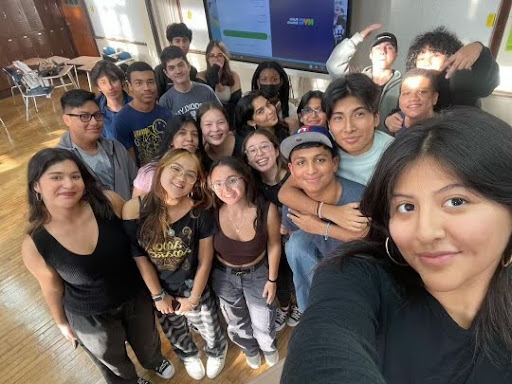Over the summer, the Brooklyn Tech community was informed that advisory classes would be made mandatory across all grade levels for the 2023-2024 school year. For Tech upperclassmen, this came as a shock, as advisory had only existed for underclassmen in previous years. While these classes aim to aid the development of all Tech students, many juniors and seniors question the need to expand the program.
In 2017, Tech introduced freshman advisory classes as a way to guide new students through their transition to high school — especially one the size of Tech. Before the pandemic, freshmen were automatically enrolled in two semesters of advisory. When in-person instruction resumed in 2021, sophomores were also required to complete one semester of advisory to help them acclimate to the daily grind in a building that few had ever stepped foot in before the remote year.
Meeting twice during the 10-day cycle, freshman advisory classes have long aimed to foster strong and welcoming relationships as students adjust to their new academic setting, interact with peers, discuss personal and school-related issues, and build interpersonal skills.
Jaeda Howell (‘26), reflected on the benefits of freshman advisory. “In advisory, we can truly get to know each other, which is a vital part of attending such a big school,” she said. “Instead of looking at [our grades]…we all get to connect.”
This year, advisory classes are required of all students for a single semester, with the new mandate for juniors and seniors intended to prepare students for the journey to college, providing important information about the application process and the financial aid process.
The task of developing a curriculum for every grade level has been assigned to the teachers on the Equity Team. Through these lessons, freshmen receive assistance with adjusting to high school, sophomores learn about career development and the major selection process, and upperclassmen receive guidance on how to improve their college applications to receive the best possible results.
This expansion seeks to fill critical communication gaps. A current senior who wished to stay anonymous admitted to not reading or checking emails that could be useful to their college planning. The integration of college-related information into advisory classes is a way of helping seniors reach information they were unable to before. Mr. Jan-Kristof “K” Louis-Monsano, the Assistant Principal of Guidance, says that, “sometimes students don’t receive the information they need, and [he] thinks that advisory classes are a great way of supplementing [that information].”
With a school as big as Tech, not all students are in touch with someone who is able to help them. Each guidance counselor has 300-400 students each, and when some counselors are less proactive,”it can be hard for [students] to receive as much attention as others” says Mr. K. “There is a group of students not receiving [what they need to know]…there are kids that [he’s] still chasing [to help with their college applications].”
Law and Society major Aila Woods (‘24) feels that senior advisory is unnecessary, thinking that it “could have been more useful last year, but this year, the information isn’t useful anymore because most people already know it at this point,” she said. “Especially for people who already applied early, advisory is just a waste of time that could be used for homework or just decompression time.”
Many seniors feel similarly, expressing that they have yet to see any benefit from the advisory. According to a poll, 90% of 151 students across all grades feel that they don’t find advisory useful or interesting. “I personally feel like advisory isn’t as engaging as it’s meant to be,” elaborated Software Engineering major Ronaldo Can Poncio (‘24).
Ms. Cuesta, the Assistant Principal of College Offices and Advisory, believes there has been some improvement in helping seniors with their college applications so far, but “not as much as [she] would like to see.” Even as senior advisory winds down, with most applications still under review, student preparedness continues to be a considerable concern for some parents, teachers, and students.
Principal David Newman, who advocated for the new advisory requirement, says that the Equity Team is trying new ways to engage students such as bringing in college representatives and admissions officers to advisory classes instead of having students go out to college fairs. Mr. Newman said, “It’s something new we’re trying, and I think it works.”








































